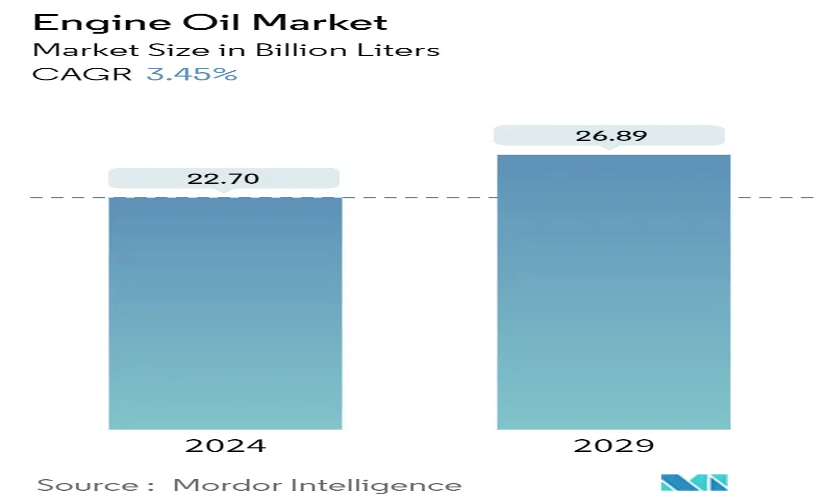
Methes Energies International Ltd. (OTC PINK: MEIL) reformulates its lubricants to meet the new industry-standardized fluid specifications. Lubricant damage, both to nature and to climate change, is widely known. The burgeoning growth of b2 biOil to mitigate and eventually drastically lower the negative effects is also well known. The opportunity to realize the absolute necessity to develop environmentally- friendly lubricants is well underway. And growth is virtually assured.
Love the Company tag-line;
The World Needs An Oil Change!
Waste oil in the ground and soil can coat or kill creatures needed to keep the environment in balance. If poured down the drain or spilt on the ground, waste oil can seep into groundwater systems. In fact, one litre of waste oil can easily contaminate a million litres of water.
“As the transportation industry evolves to the growing demand for new eco-friendly vehicles, it too must change. By increasing the total percentage of renewable and re-refined base stocks in our formulas we are able to expand our green footprint provided by our bio-based/biodegradability b2 biOils,” said Carol Loch, CEO and Chairman of Methes. “This assortment will continue to achieve our product’s ability to biodegrade quickly and nearly complete within 28 days.”

b2 biOil has been created to address the world’s growing “lubricant” concerns regarding motor oil’s effects on the environment (whether during oil production or the oil’s ‘end-of-life’ improper disposal) with an eco-friendly offering that satisfies growing consumer demands while meeting the needs of ongoing government requirements that mandate the procurement of domestically sourced biodegradable products.

The Engine Oil Market size is estimated at 22.70 Billion litres in 2024 and is expected to reach 26.89 Billion litres by 2029, growing at a CAGR of 3.45% during the forecast period (2024-2029). (https://www.mordorintelligence.com/industry-reports/engine-oil-market)
Here are some salient facts about the Lubricants Sector. While these points seem disturbing, they particularly address the need for b2 biOil to mitigate the environmental damage.
- Over the medium term, the increasing automotive production and sales and the increasing adoption of high-performance lubricants are significant factors driving the market’s growth.
- However, extended drain intervals and the modest impact of electric vehicles (EVs) are key factors anticipated to restrain the growth of the target industry over the forecast period.
- Nevertheless, the growing automotive industry in the Middle East and Africa and numerous upcoming construction projects in North America and APAC will likely soon create lucrative growth opportunities for the global market.
- Asia-Pacific region is expected to dominate the market and is also likely to witness the highest CAGR during the forecast period.
Engine Oil Market Trends
Increasing Demand from Automotive Industry
- Engine oils are widely used to lubricate internal combustion engines. They comprise 75-90% base oils and 10-25% additives and are used mainly in automotive and other transport segments worldwide.
- The major advantages of using engine oils are wear and tear reduction, corrosion protection, and smooth operation. They function by creating a thin film between the moving parts to enhance heat transfer and reduce tension during parts contact.
- The increasing production and sales of light-duty vehicles are estimated to have a direct impact on engine oil consumption. This, in turn, is anticipated to drive the demand for engine oil during the forecast period.
- According to the International Organization of Motor Vehicle Manufacturers (OICA), global motor vehicle production reached 85,016,728 units in 2022, an increase of 5.9% compared to the previous year’s data. Motor vehicle production growth year-on-year between the 2021 and 2022 markets was 6%.
- Similarly, according to OICA, commercial vehicle production reached 57.49 million units in 2022 and registered growth compared to 56.44 million units in 2021.
- Meanwhile, according to the Bureau of Economic Analysis of the United States Department of Commerce, light vehicle retail sales reached 13,754.3 thousand units, the lowest production since 2021, when 14,946.9 thousand units were produced.
- Further, according to the German Association of the Automotive Industry (Verband der Automobilindustrie), automobile production in Germany reached 3.4 million in 2022 and registered a growth of 9.6% when compared to 3.1 million in 2021.
- As a result, the factors above are anticipated to have a substantial beneficial influence on the engine oil market in the future years (https://www.mordorintelligence.com/industry-reports/engine-oil-market)
Lubricant biodegradability represents the chemical degradation of the lubricant caused by its contact with microorganisms. While the physical traits of the substance change, the molecular structure remains the same.
The degree of biodegradability is assessed by calculating the lubricant’s conversion rate to CO2. The lubricant is considered biodegradable when 60% or more of the test material is transformed into CO2 in 28 days.
Bio-based lubricants are also called bio-lubricants. As their name suggests, this type of lubricant is derived from bio-based raw materials that serve as their basis. That could be animal fats, vegetable oils, or eco-friendly hydrocarbons.
Besides being renewable and sustainable, bio-based lubricants share some significant lubrication characteristics, especially when compared to mineral oils. For example, they have exceptional lubricity, a high flash point, a high viscosity index, and good shear resistance.
Bio-based lubricants can be used in both open and closed systems. Oils used in open systems are also called total-loss lubricants because they escape the system during operation. Those are typically two-stroke oils used in chainsaws, metalworking equipment, etc.

In conclusion, the answer to the oil environmental contamination issue is underway, and there is only growth to look forward to. Methes Energy certainly represents an environmental proxy as the lubricant industry moves to right the wrongs of the past.
That said, here is the opportunity spelled out:
Bio-based lubricants production is still low, mainly due to their limited production.
Posted on Behalf of Methes Energies
